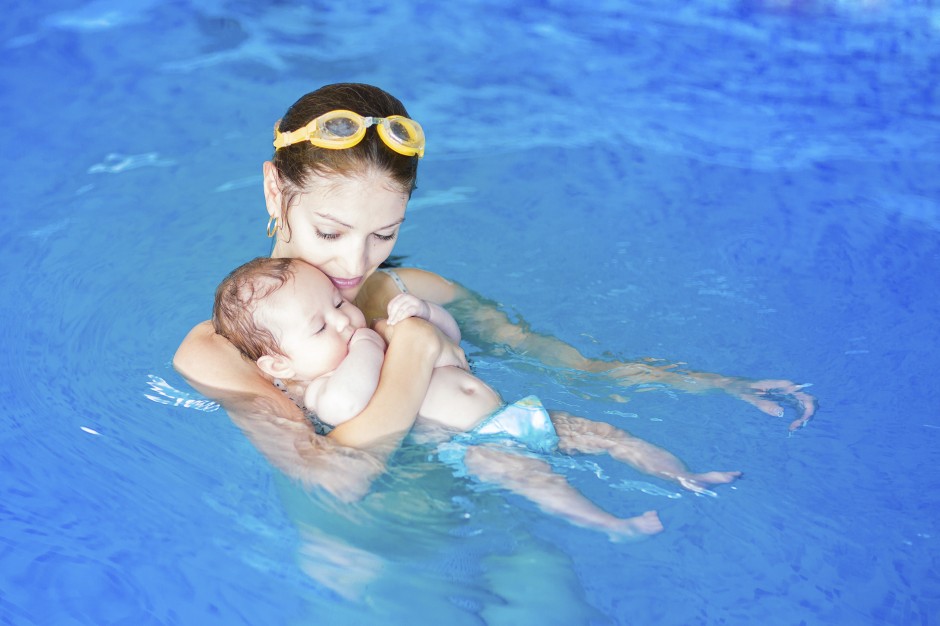
The American Pediatrics Association and American Red Cross said – for years – that 4 years old was the best age to begin swim lessons. They’ve pretty much changed their minds about this and – along with some other organizations – say that there is no age that’s too early to learn to swim.
What does it really mean to start swim lessons at infancy?
If beginning swimming lessons with a child younger than 4, you have to set reasonable expectations. It’s important to understand what a child can do at whatever age the lessons begin.
At a very young age, a child needs to splash and play in a developmental approach so he can explore the new environment peacefully without being forced to comply with instructions. It is important that a child is comfortable with being exposed to water. An infant should be in a parent-and-baby class that is focused on having fun and getting comfortable in the water – not learning to swim. A child this young can’t take instruction or actually learn the skills.
At this age, the child should:
• Be within arm’s length of their parent at all times.
• Be wearing a swim diaper that prevents fecal matter from leaking into the pool (a major health risk for other swimmers.)
Can we consider it growing into water skills?
A child as young as 18 months may take to the water as if he or she was born into it, learning to swim happily and fearlessly. At 18-months-old, a child often instinctively relaxes and embraces being in water. It’s important to keep them swimming because – at this age – the child will forget new skills they’ve learned if there is a gap from one season to the other. This creates a setback situation where the child who hasn’t been swimming will have to relearn some skills before resuming at the level where the next level class starts. The child will re-learn quickly and move on to new skills. Reaching plateaus for young ones is temporary and actually healthy as it gives the brain a chance to process the new skills that have been introduced.
At age 2, a child probably won’t learn inherently on his or her own so frustration and confusion may set in. The child may seem puzzled, awkward and tentative about swim moves and instructions. But at this age, a child can play fun games that where he or she throws a ball across the pool, blow bubbles in the water to learn how it feels to get his or her face wet without swallowing the water.
At 2, a child can learn to kick his or her legs, and float on the stomach or back (with support). By the time a child reaches 3, he or she should be to do many of these things with little or no help. By the time a child is about 2 ½ he or she can take instruction and begin to learn the skills it takes to swim.
At the 2 to 3 age range, it’s important to stress safety – like no running around the pool and going in the pool only with mommy or daddy. Using inflatable items – like water wings and rings – can give a child at this age a false sense of security and cause the child to get in distress if the item deflates.
Before 4, and even up to age 6, a child can’t be considered as water-safe regardless of how well he or she is progressing through swim lessons because water safety is multi-layered and complex. It takes a little more maturity to be able to understand risks – especially because water venues where they may swim look so different.
It’s important to remember that each child learns differently. The statements above about age and expectations are approximated after watching hundreds of children learn to swim. Each child develops confidence and learns skills at his or her own pace. Twins may begin lessons at 6 months. One may be floating on her back with only a few lessons while the other is struggling to become comfortable having water splash around her. One child could be swimming by 3 while the other is still working up to it at 4. The post simply shares information to guide the expectations you have for a child’s progress.
Sources: Red Cross, Washington Post, Circle of Moms, American Association of Pediatrics, Parents.com


Conversations